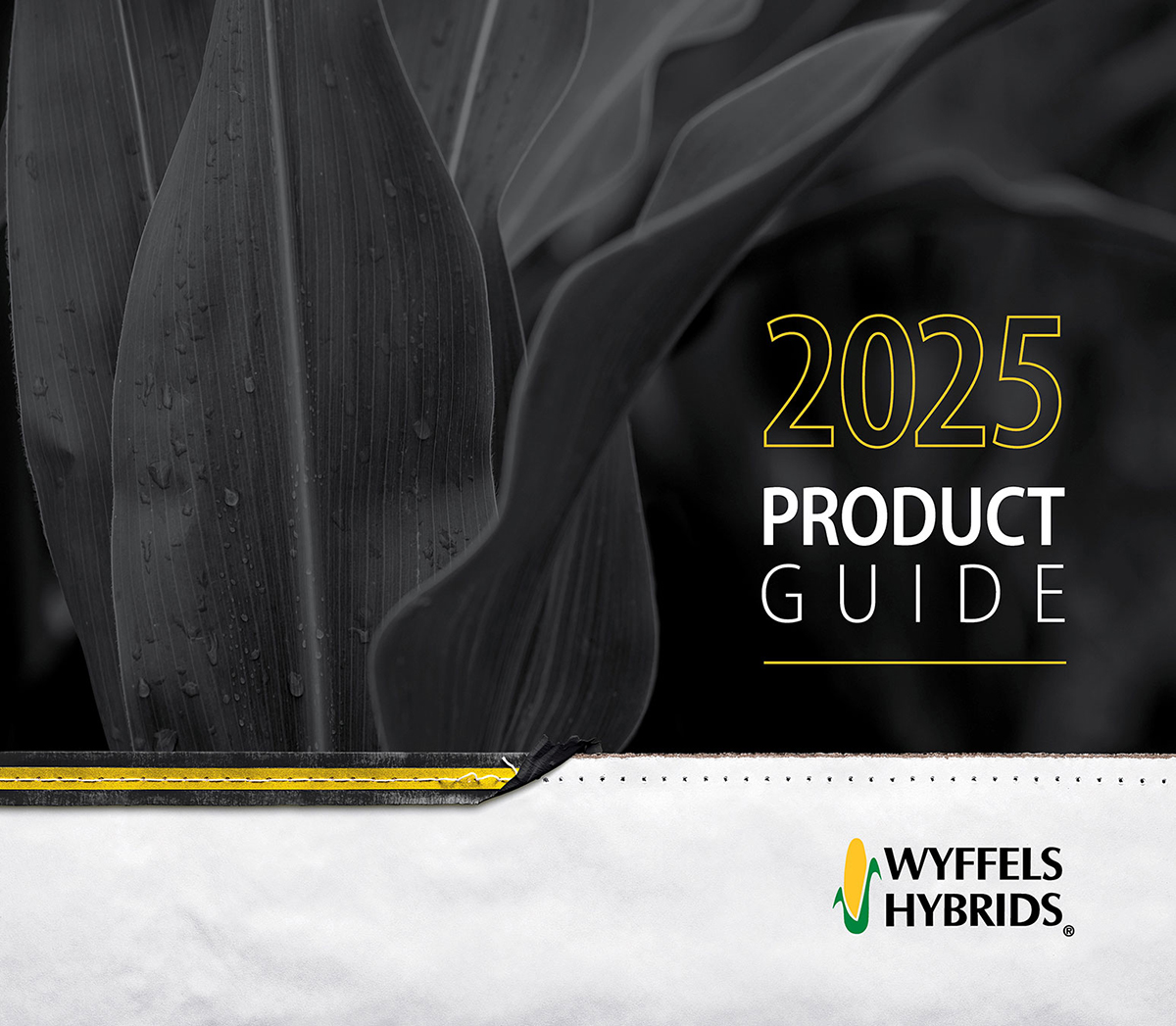KNOWLEDGE IS POWER. It’s hard to believe a small pest like corn rootworm (CRW) can cost the ag industry upwards of one billion dollars per year, though corn growers who have endured a rootworm outbreak can attest that is a realistic number. Much of that billion-dollar pie consists of crop losses, but control measures targeted at CRW also account for a slice of total costs. We have multiple tools in our toolbox to combat rootworm, so the trick is knowing when to use them, and most importantly, how to use them efficiently in order to avoid “hidden costs” in corn production.
KNOWLEDGE OF THE LIFE CYCLE AND PREDICTIVE HABITS OF CRW IS THE FIRST STEP TOWARD EFFECTIVE CRW MANAGEMENT. CRW beetles lay eggs which overwinter to hatch into next year’s CRW population. While beetles are active during the summer months they can be captured using yellow sticky traps, providing powerful insight for what to expect the following year. Since 2014, Wyffels has collected data from over 2,500 fields across the Corn Belt. This information is not only industry-leading, but extremely powerful. It allows us to track the general population and risk across our geography and help corn growers make smart and knowledgeable decisions when it comes to CRW management on their farms.
COMMITTED TO YOU. Effective CRW management takes a commitment that is multi-faceted and will likely span multiple years. At Wyffels, we are committed to helping you maximize yield and return on investment, and that means using the right CRW management strategy on every acre. I encourage you to reach out to your local Wyffels Seed Representative to discuss management options for your acres. Your seed rep will combine your farm and field pest history with their knowledge of local CRW pressure to find what best fits your operation. The battle against CRW will not be easily won overnight. It will take careful planning and implementation, and we are committed to helping you every step of the way.
The following recommendations require knowledge of previous years’ CRW activity. Contact your Wyffels Seed Representative to help you better assess CRW pressure in your fields and assemble the best rootworm management and control plan for your entire farm.
First Year Corn Management
- In areas with low CRW beetle activity, non-GMO or VT Double PRO® hybrids with or without a soil insecticide are viable options.
- Areas with higher beetle activity carry more risk of rootworm damage next year. If using a non-rootworm traited hybrid in these areas, be sure to use a soil insecticide. Or plant a SmartStax® hybrid.
Continuous Corn Management
- Corn rootworm beetle activity has varied in corn fields across our marketing area. Planting an unprotected hybrid in continuous corn, especially long-term continuous corn, is risky.
- In second-year corn, planting a SmartStax hybrid or a VT Double PRO hybrid with insecticide is recommended.
- Fields with multiple years of continuous corn naturally pose a higher risk than a second-year corn field, so planting a SmartStax hybrid is recommended in fields with a history of three or more years of continuous corn.
- Persistently high CRW activity levels in long-term continuous corn fields already using CRW traited hybrids may require alternative control methods, such as crop rotation or soil insecticide to reduce CRW populations and maintain trait durability.
